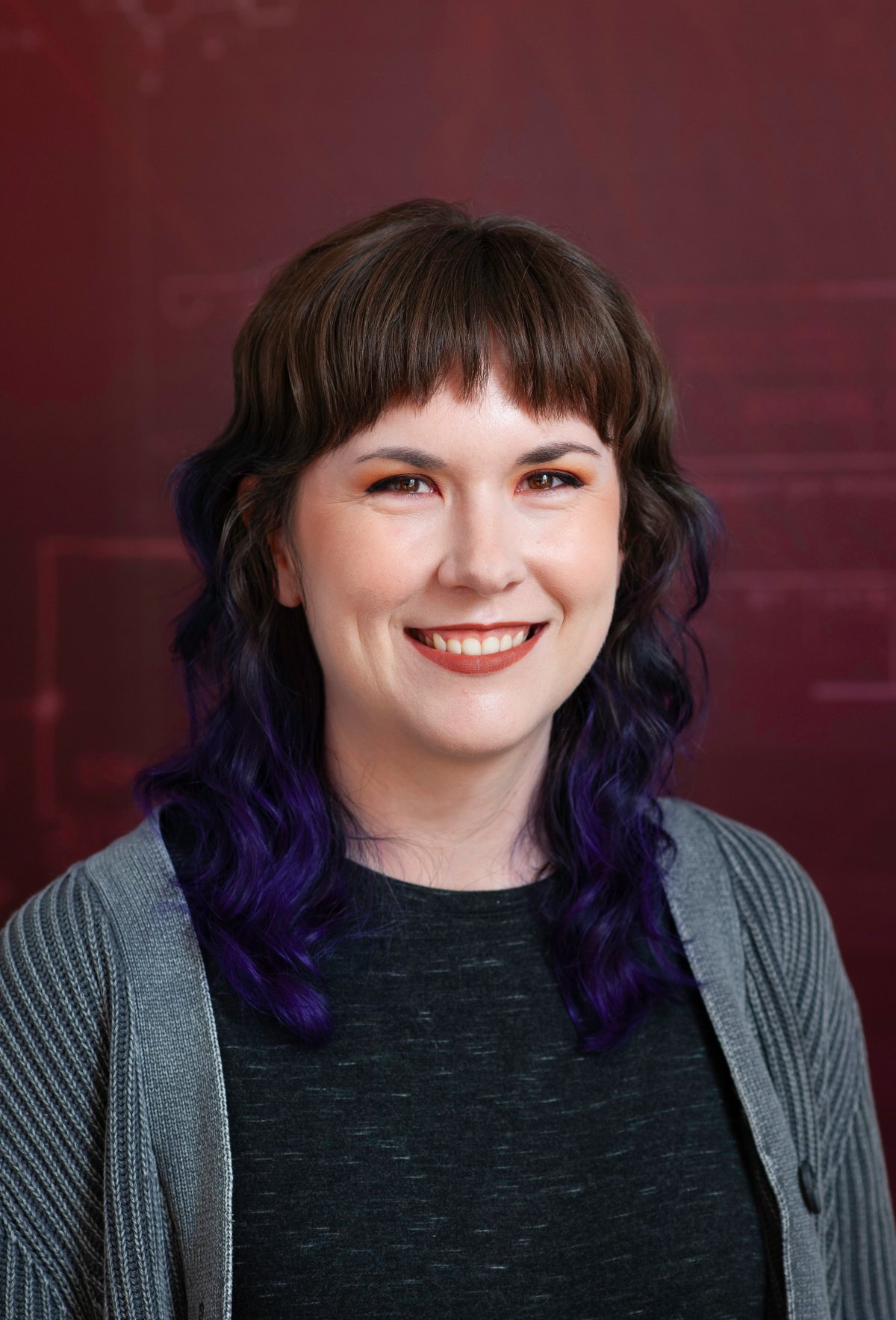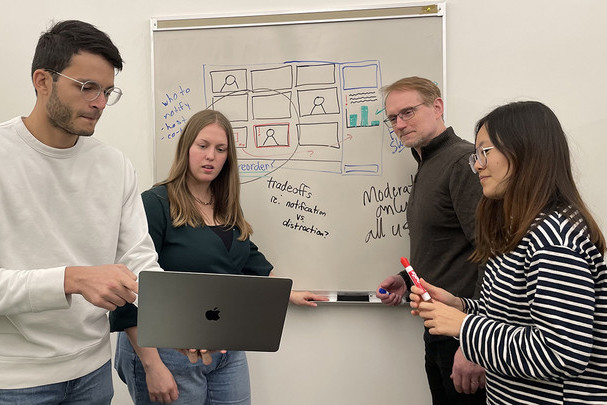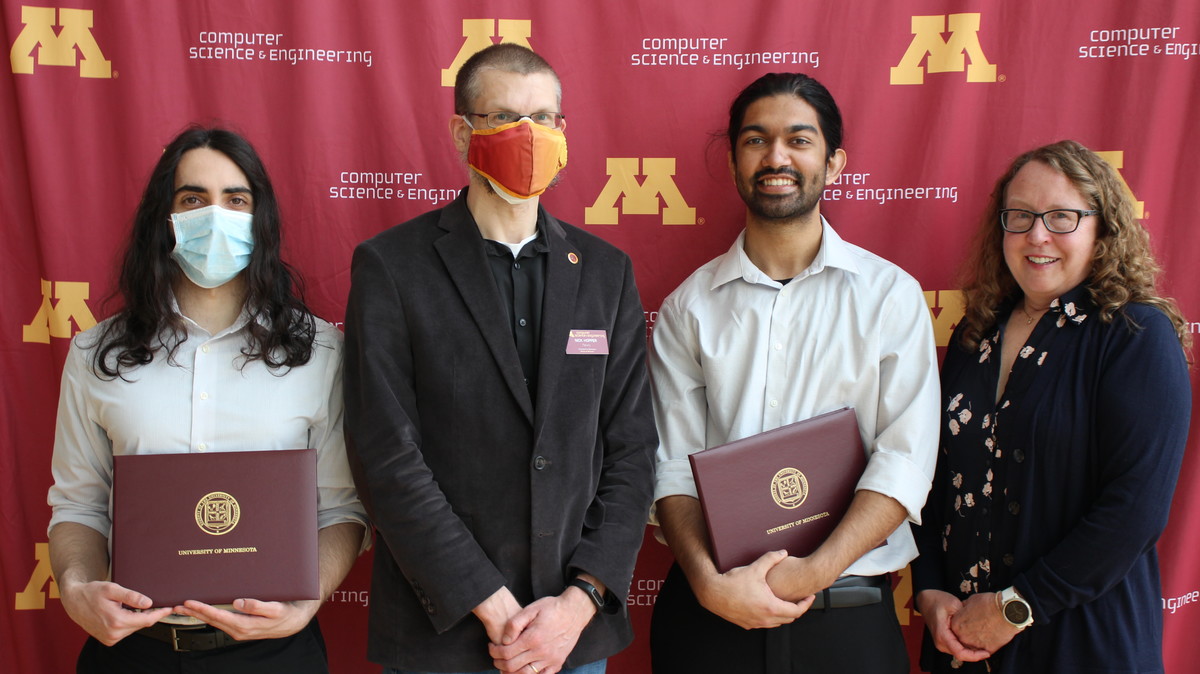M.S. in Computer Science overview
The M.S. Computer Science program has access to state-of-the-art research facilities that provide students with the tools and resources needed to produce impactful research. We encourage interdisciplinary study and real-world application of computer science principles. Students will gain hands-on experience through a thesis or capstone project and many go on to work in big tech, medicine, finance, and more.
General degree information
The M.S. program in the Department of Computer Science & Engineering (CS&E) has three tracks a student may choose to pursue. Each track has a separate set of requirements though the general structure remains the same. Early on in your career as an M.S. graduate student, you will determine which track you would like to pursue and begin to take courses to fulfill requirements for your program.
All M.S. degrees in CS&E require a total of 31 credit hours (16 of which must be CSCI courses), a minimum GPA of 3.25, a minimum of 3 breadth requirements courses, and a colloquium. All CSCI credits must be 5000 level or above, and at least 3 of the total credits must be from an advanced CSCI course.
Important reminders for all M.S. students
- Students who take 6 credits or more are considered full-time graduate students. All international students and students who hold a graduate assistantship, fellowship or traineeship are required to be full-time students.
- Almost all of the graduate level courses in CS (5000 level and above) are 3 credits each.
- Special topics courses (CSci 5980 or 8980) are courses taught one time only and are good options if the topic is of interest to you. These do not count towards Breadth requirements but the 8000 level ones will count towards the CSCI advanced course requirement.
- All CS courses must be taken A/F unless only offered S/N, such as Colloquium or Plan B project. No more than one-third of the courses that will count towards your degree can be taken on the S/N basis.
- All requirements for the Master's degree must be completed and the degree awarded within 5 years of matriculating into the program. Progress Guidelines are available in Appendix A of the Graduate Student Handbook.
- All M.S. students are expected to maintain a cumulative GPA of 3.25. After every spring semester, a review of M.S. computer science students will be conducted and students who fall below the GPA requirement will be notified. Students who are below program GPA requirements may be asked to connect with a Graduate Programs Coordinator to discuss their progress in the program.
Advising
The Graduate Program Coordinators can answer most questions and advise students on degree requirements, department procedures, or general issues about being a graduate student. All new students are expected to meet a Graduate Program Coordinators upon arrival as well as several times throughout your graduate career in order to best facilitate your program.
The Director of Graduate Studies is the official advisor of record for all students unless an advisor was assigned at the time of admission. Master's students will choose an advisor for their plan B project or plan A thesis after completing a few courses in their area of interest, attending seminars and engaging in individual discussions with members of the faculty, typically by the second semester. Plan C and MCS students do not need to complete this step. Only faculty with graduate education responsibilities are eligible to serve as advisors for graduate students. The advisor-advisee relationship is a mutual and an advisor must agree to advise any student. Once a student determines his or her advisor they will fill out a "Declaration of Advisor" form. A student may change advisors at any time using the same form. Please note that the new and the previous advisor must sign to acknowledge this change.
For questions regarding the advising process, please contact csgradmn@umn.edu.

Stephen Guy
Associate Professor, Director of Graduate Studies
5-225F Keller Hall
612-625-3368
sjguy@umn.edu




